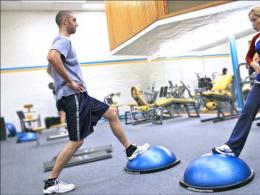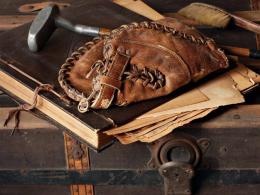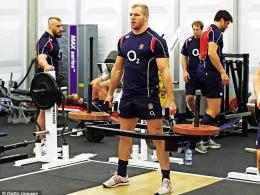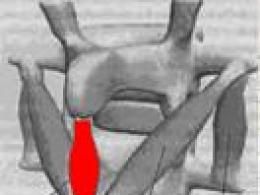When is the best time to drink: before, after or with meals. What drinks to give preference during the diet
Drinking clean water during a workout is healthy and everyone knows this. But there is a way not only to replenish the fluid reserves in the body, but also to nourish it with other vital elements and thereby increase the effectiveness of your workouts!
In the process of physical activity, our body experiences certain losses:
- First of all, fluid is lost and certain trace elements along with it (liquid) - electrolytes (potassium and sodium), as well as other minerals, such as magnesium and calcium.
- The level of sugar in the blood decreases - the body constantly produces energy and this energy is wasted in the process of muscle activity, so the amount of sugars is gradually reduced.
- During training, tissue destruction occurs, that is, protein structures are exposed and destroyed.
With all of this said, it begs the question – can we compensate for all this in the process of training in order to prolong intensity, increase efficiency, and simply feed our body with lost minerals? Let's figure it out.
Water
Let's start with water. Water is a natural fluid and the body needs it very much. Therefore, we drink it in training. However, in addition to water, we need various trace elements that we lose during training, so we move on to the next option.
Sports drinks containing proteins
With water alone, we will not be able to make up for all the losses of our body during training. But what can be dissolved in this water? Is it possible to dissolve protein in this water?
We have tried drinking such drinks during a workout and we can say that this is absolutely not the right thing to do. The presence of protein in the liquid only complicates the body's work, "weights" the drink and thereby reduces the effectiveness of the training itself. But sugar can be dissolved in water. So the next type of drink appears.
Energy

There are a huge number of energy drinks, but their essence is the same - to support the body energetically with the help of components such as ginseng, caffeine, guarana - that is, elements that stimulate the human nervous system. Plus, give this person food in the form of sugars, the concentration of which in energy drinks reaches 14 grams. per 100 ml. But there are some nuances here.
Let's take freshly squeezed orange juice as an example. This is essentially a drink that nature itself created and nature provided this drink with a certain concentration of nutrients, including sugar. So, in orange juice, the concentration of sugars reaches 11-12 grams, that is, in energy it is slightly higher, or the same. But the fact is that it has always been used as food and is perceived by the body as food. In the heat, you will not get drunk with orange juice, but at the same time it nourishes our body, and there are certain situations in life when you can’t think of anything better, but not during a workout.
The same is true with energy drinks. There are situations when energy drinks are needed by the body, but this is not during a workout, it is rather BEFORE some energy-demanding task, that is, you can drink an energy drink just BEFORE training. When it is necessary to provide an energy release and feed the body with a sufficiently high amount of sugars that the body needs for proper functioning. The same applies to other drinks containing sugar.
Any drink that is high in nutrients (sugar in this case) can essentially be compared to food simply dissolved in water. But the body during training does not have the opportunity and no strength to engage in digestion, so the concentration of nutrients, namely during intense exercise, should be minimal.
There are energy drinks that contain all the same stimulants - caffeine, guarana, ginseng, but instead of sugar, stevia or other sweeteners are used here. What can we say about these drinks? The sweetish taste gives the illusion that the drink is sweet, but in reality, glucose does not enter the body, that is, the body does not actually receive the very component that is designed to maintain or raise blood sugar levels. Therefore, such drinks are not suitable for maintaining sugar levels either before or during a workout.
Water with electrolytes

Electrolytes (potassium and sodium) are the components that allow a person's nerves to conduct electrical impulses to the muscles. Our body is able to move precisely due to the presence of electrolytes in the body.
Many fitness clubs sell water with electrolytes, and it is very good that they enter the body. But there is one minus of this drink - there are no sugars, and this is exactly what the body lacks during training. The body asks for glucose. Therefore, we immediately move on to the next drink.
Isotonics

Isotonics are water that contains electrolytes, calcium, magnesium and, most importantly, a certain amount of glucose in order to support the body's need to replenish blood sugar. It is very important that the concentration of these elements is very close to the level of concentration in human blood, so it does not overload the body with unnecessary elements, including sugars, as is the case with energy drinks. Thus, this drink is convenient for disposal during physical activity and is the one we recommend drinking during your workout.
Guys, we put our soul into the site. Thanks for that
for discovering this beauty. Thanks for the inspiration and goosebumps.
Join us at Facebook and In contact with
In programs about healthy eating, it is often stated that water should not be washed down with food. Someone explains this by saying that water dilutes gastric juice. Others believe that because of this you can get fat. Still others say that water pushes undigested food out of the stomach. But can ordinary water really harm us?
website I finally decided to put an end to it and figure out whether it is possible to drink while eating.
What happens to food and water in the stomach
The process of digestion begins already when we are looking forward to the future meal: saliva forms in the mouth. When chewing food, we mix it with saliva, which contains the enzymes necessary for digestion. The softened food then enters the stomach, where it mixes with acidic gastric juice. Average stomach takes 4 hours to digest food, that is, turn it into a liquid substance - chyme. The chyme goes further into the intestines, where it gives the body various nutrients.
Water does not stay in the stomach for a long time, 300 ml of water will go into the intestines in about 10 minutes. That is, if you drink while eating, the water does not form a lake in your stomach. It passes through chewed food, additionally moisturizing it, and the residue quickly leaves the stomach.
Liquid does not reduce acidity
Our body is a complex, but very well-coordinated system. If the stomach "feels" that it cannot digest something, it produces a new portion of enzymes and increase gastric acidity. Even if you drink a liter of water, it will not affect the acidity in any way. By the way, water enters the stomach and along with food, for example, an average orange is 86% water.
In addition, studies have shown that food itself can slightly reduce acidity, but it is quickly restored.
Liquid does not affect the rate of digestion
No scientific study has confirmed the myth that liquid pushes solid food into the intestines before it has had time to be digested. Scientists confirm that liquid leaves the stomach faster than solids, but does not affect the speed of their digestion.
So can you drink while eating? draw the line
If you drink during the meal, no harm will come. Conversely, water helps to soften and it is better to digest the "dry food". However, you should not drink until you have stopped chewing and swallowed food - it should be saturated with saliva, which contains the necessary enzymes.
There are other significant benefits. A study has shown that when a person takes short breaks to drink water, it slows down the progress of his meal. As a result, a person eats less, which means does not overeat.
If you are used to drinking tea instead of water, there is nothing wrong with that.. Studies have not found any difference in the increase in gastric acidity from tea and water.
Water temperature also does not affect the rate of digestion or nutrient intake. In a few minutes, the stomach heats or cools the contents to the desired temperature. However, scientists still recommend not drinking boiling water, but cooling hot drinks to 65 ° C.
It would seem that there is nothing extraordinary in drinking water. However, there are many myths about how to do it correctly. Advises the dietitian of the capital's "Clinic of Dr. Volkov" Marina Anatolyevna Khachaturova.
Myth #1: You need to drink 2 liters of water a day.
In fact. This is not entirely true. Traditionally, it is believed that the rate of water consumption (the amount necessary to maintain proper metabolism) is 1 liter of water per 30 kg of body weight. If your weight is 60 kg, then it turns out that the recommendation about 2 liters of water is really relevant. But if a person's weight is out of the norm (in one direction or another), these calculations can lead very far. An anorexic girl will be dehydrated, and a fat man weighing more than a centner will die from water intoxication. Therefore, it makes sense to recall the recommendations of the US National Academy of Sciences of 1945: "1 ml of water for every kilocalorie of food consumed." The diet of a modern person is on average 2000-2500 kilocalories - and we are returning to the notorious two liters. But there is a caveat: these two liters include the liquid that is contained in cooked food! In short, it makes no sense to scrupulously calculate how many liters of water you need to drink daily. If you feel thirsty, you need to respond to it.
Myth two. During the diet, it is necessary to reduce not only the amount of food, but also the consumption of water. Otherwise, do not lose weight
In fact. Water is one of the main assistants in the fight against excess weight. Its consumption helps to remove the breakdown products of proteins, fats and carbohydrates from the body, which is one of the most important goals of many diets.
Most women try to cut down on water intake while on a diet because they are afraid that they will develop swelling and keep those extra inches off. This is not entirely true. As a rule, puffiness is associated not so much with drinking water, but with the consumption of salty or spicy foods that retain fluid in the body.
If you reduce the number of spicy and salty foods in your diet, the result will not be long in coming. Of course, provided that the excretory system is working properly. But people with kidney or bladder diseases generally need to be approached very carefully with diets. They can lose weight only with the permission of the doctor and under his control.
Myth three. You can not drink with food: water will dilute the gastric juice, and there will be problems with digestion
In fact. This is nothing more than a theory that has become popular recently. She has no real reason. On the contrary, the water that we drink during meals lengthens the chewing process, softens food, facilitating the task of the digestive system. In addition, drinking water helps to reduce the amount of food eaten.
The main role in the process of digestion of food belongs to hydrochloric acid contained in gastric juice. It is released in response to ingested food, softens it, activates enzymes, promotes the formation of digestive hormones.
Small changes in the concentration of hydrochloric acid due to drinking water are not of fundamental importance. Imagine: you dilute 50 grams of juice with water. Will it decrease in number? No. In addition, water, unlike food, leaves the stomach very quickly - so there is nothing to worry about.
True, it is advisable not to drink ice water during lunch. Even Soviet scientists proved that if you drink porridge with a very cold drink, then the time it stays in the stomach is reduced from 4–5 hours to 20 minutes. This leads to the fact that the feeling of hunger returns very quickly, and the risk of obesity increases. In addition, “accelerated” digestion does not bring benefits to the body.
It should be drunk an hour before meals, during meals, but it is not recommended to drink within an hour after meals. Imagine: you had lunch and drank tea: soup occupies 200 ml of the volume of the stomach, meat - also 200 ml, garnish - 100 and in addition 2 more cups of tea. As a result, the stomach becomes stretched, and the next time you eat more. Setting the complex dinners "first, second, third and compote" in the last ten years of research has proven to be ineffective.
Myth four. In the morning on an empty stomach you need to drink a glass of water, but you can’t drink at night
In fact. One can agree with the first part of the statement. It really helps to drink a glass of water on an empty stomach in the morning. It helps to wake up, immediately activates our nervous system, improves well-being. The best effect from a morning glass of water is if you add a slice of lemon to it. It is advisable to put it in a glass of water in the evening, then, upon waking up, you will get a wonderful vitamin infusion.
But the ban on drinking water at night is very conditional. It is believed that swelling may appear on the face from this in the morning. However, again, if the kidneys are working well, this is unlikely.
In general, it is somewhat strange to talk about when you can drink water and when not. Indeed, recently doctors have increasingly come to the conclusion that it is desirable to drink in small portions and evenly throughout the day. Drink water with lemon on an empty stomach, then drink a glass of herbal infusion or decoction before breakfast. Be sure to drink before dinner. Drink a couple of glasses of herbal tea, juice, or water in the morning and afternoon.
In the hot season, when fluid loss and thirst increase, you have to drink more. In these cases, it is better to drink a glass of water not at once, but gradually, taking 1-2 sips at short intervals. If you are doing something, put a glass of water near you and drink it periodically in small sips. This drinking regimen is very beneficial for the kidneys and ureters.
Myth five. Drinking while exercising is harmful. This increases the load on the body and prevents weight loss.
In fact. This is not true. Everyone knows that if you sweat a lot in training, and then do not drink water for some time, body weight will decrease slightly. But it is worth drinking water, as the weight returns to its original state.
The fact is that cells, including fat cells, are partially composed of water. During training, they lose it, so it seems to us that we have lost weight. But the number of fat cells does not decrease, and after a while they are restored in volume. Therefore, there is no need to test your body with dehydration during sports - you will lose weight from this only illusory. To really get rid of fat, you should change the nature of the diet, pick up a different workout. And you can drink water anyway. It does not increase the load on the body.
On the contrary, during training, the body temperature rises, sweating increases, as a result of which the volume of circulating blood decreases, and its viscosity increases. And here it is not far from low blood pressure or thromboembolism. Drinking water helps prevent all of this.
If your workout is intense, doctors recommend sticking to the following drinking regimen. Drink a glass of water 1.5-2 hours before class. Add another half cup 10-15 minutes before your workout. During classes, you should drink 100-150 ml every 15 minutes. At the same time, you don’t need to force yourself - if you want to skip one of the water intakes, it’s okay. And after training, drink 150-200 ml every 15 minutes until the lost fluid is completely replaced.
magazine "Women's Health"
The title turned out to be a bit ambiguous, so I’ll clarify right away: we are not talking about intoxicating libations, but about drinking water.
First of all, let's recall a few facts from anatomy about the structure of the stomach.
The first fact indicates that the stomach is served by two valves - at the inlet and outlet. The top valve (at the inlet) constantly allows food (and water) from the esophagus to the stomach, but must never release it back into the esophagus. If the upper valve is out of order and leaks food or gastric juice back into the esophagus, heartburn and other digestive disorders occur.
The lower valve - at the outlet of the stomach - is also designed to pass digested food only in one direction - from the stomach to the intestines. Unlike the top valve, the bottom valve does not let food through immediately, but closes for several hours when food enters the stomach - and opens when digestion is completed. Thanks to this, the process is maintained - the food is in the stomach for the required time and then, already in a digested form, it follows further along the intestines.
In other words, everything that you ate and drank quickly "falls" into the stomach, but food and drink do not pass from the stomach further into the intestines immediately, but only "by permission" of the stomach, when it "decides" that everything has been digested enough.
The second fact is that for the production and excretion of gastric juice, the body, of course, requires water.
The third fact suggests that water is poorly absorbed by the walls of the stomach, but is perfectly absorbed by the intestines.
Let's try to simulate the behavior of the stomach in different situations.
Drink water BEFORE eating
It is important to understand here that BEFORE eating in this case means "on an empty stomach" (the lower valve of the stomach is open). If you ate meat half an hour ago, and now you decide to eat pasta as well, and before that you drink water, then this is not BEFORE eating, but AFTER (the lower stomach valve is closed, the digestion process is going on).
So, the top valve allows water into the empty stomach without delay. The bottom valve, again without delay, passes water into the intestines, since the water does not require digestion. Water in the right amount is absorbed by the intestines, the excess is very quickly excreted by the kidneys (it is easy and quick to verify this if you drink more water). The result - the body is saturated with water, including ready for the release of gastric juice. And the kidneys, removing excess water, got rid of the accumulated toxic substances.
This whole process takes 15-20 minutes, which is why it is recommended to drink water about 20 minutes before eating.
Drink water AFTER eating
The situation is different, since the bottom valve is closed, and food (including water) will proceed further only after a few hours. Nevertheless, the upper valve lets water into the stomach (remember that it is constantly open), but water no longer passes from the stomach to the intestines. As a result, water first fills and inflates the stomach. If you continue to drink, the water fills the entire esophagus and comes "under the very neck." Have you ever had such an experience when water gurgles in your throat? You can't drink anymore physically.
If you drink moderately, the effect will be limited to a bloated, heavy stomach and diluted gastric juice. Diluted gastric juice means that its concentration may not be enough for high-quality digestion of food, and a “half-raw” product will enter the intestines, causing gas, constipation and other digestive disorders.
It is important to understand that the actual process of digestion differs from the above scheme, since the stomach is not a cooking pot, the contents of which can be easily diluted with water. Depending on what is eaten, some of the water can sometimes even pass through the "closed" valve of the stomach, and sometimes not. Therefore, do not torture yourself with thirst, and drink if the body asks for fluids after eating. But be sure to distinguish real thirst from the psychological habit of drinking "on the machine" after eating.
Drink water while eating
The situation is not fundamentally different from drinking after eating, since the bottom valve is closed. If the valve does not have time to close, or is not in order, then water can seep into the intestines, entraining particles of undigested food and causing the same disorders.
If you want to drink during and after meals
The human body is a very wise system, and if you listen to it carefully, you can add a lot of health and pleasant emotions. The process of digestion is not fully understood, and actual digestion may differ from the models presented. Especially personally your organism - in general is deeply individual.
So trust your body. If you want to drink while eating - drink. If you are thirsty after eating, quench it. But moderately. classical a cup of hot tea fit just right.
Keep in mind that when drinking while eating, there is a risk of swallowing poorly chewed food, see below about dry food.
And it is definitely worth refraining from drinking ice water and drinks with ice during and after meals. On the Internet, there are many references to the doctoral dissertation of Professor Lindenbraten V.D. (Unfortunately, the thesis itself could not be found).
In the practice of Soviet radiologists (Prof. V.D. Lindenbraten, 1969) there was such a case. It was necessary to achieve the retention of barium porridge in the stomach for the time necessary for x-ray examination. But it turned out that if porridge is given without preheating (immediately from the refrigerator), then it leaves the stomach faster than the radiologists had time to adjust their then (1969) - not so perfect - equipment.Radiologists became interested in this fact, conducted experiments and found out that if you drink food with cold drinks, then the time the food stays in the stomach is reduced from 4-5 hours to 20 minutes (for more details, see Vitaly Davidovich Lindenbraten's doctoral dissertation “Materials on the question of the effect on the body heat”, 1969 Institute of Experimental Medicine of the USSR Academy of Medical Sciences, Leningrad). This is, firstly, a direct path to obesity, since it is impossible to get enough of such food and the feeling of hunger comes very quickly. Secondly, this is how putrefactive processes begin in the intestines, because there was no normal digestion, as such.
By the way, this is the way in which McDonald's made a lot of money for itself! Washing down food (sandwiches, hamburgers, hot dogs) with ice drinks, a person will never be able to eat fast food, which means that he will come to have a bite again and again. At the same time, a rather high price is set for hot drinks - tea, coffee - and they are not included in complex sets, but ice-cold Coca-Cola is relatively cheap. From the above, we can conclude: to avoid digestive problems, never drink cold drinks with food!
The conclusion is clear
Draw the obvious conclusion yourself :).
The most fertile time to saturate the body with water is on an empty stomach in the morning. I drink a few glasses intermittently (before a shower, after a shower, before leaving the house, etc.). Similar recommendations are given by doctors and nutritionists.
Going to work without breakfast(oh, horror!), or . At work, I continue to drink water little by little, but I don’t feel like eating until lunch. This is normal - my work is sedentary, does not require increased calories.
But what about the soup?
Indeed, the soup is already diluted with water, which means that digestion follows the "drink with meals" scenario. At the same time, soups are traditionally considered very beneficial for digestion. Was the wise grandmother wrong?
The wise grandmother, as always, was right. Not only did she say "eat soup," she added "don't eat dry food."
What is a dryer
The human stomach is designed for sufficiently "wet" food. containing, as you know, 80-90 percent or more of water. If your food is more "dry" - bread, something fried, dry convenience food, etc. - Drying starts.
To digest "dry" food, the stomach needs additional water. And he will definitely ask her, and then he will try to evenly mix the sandwich with the drunk soda. For high-quality moistening of all the pieces, the sandwich should be soaked in a drink well in advance of the meal, but the food will turn out, to put it mildly, unappetizing.
But the soup not only contains additional water, but all its components are already boiled, saturated with water as much as possible in advance. And the "extra" broth is not superfluous at all - it compensates for the lack of water in the second dish. Grandma will certainly offer a classic three-course dinner :)
However, even dry food has a positive side. To swallow a sandwich without drinking it, you want to chew it very carefully, and when drinking it, there is a risk of hastily swallowing large pieces, which is not at all favorable for the stomach and digestion in general.
In the dry matter
Drinking water before meals is the most beneficial and harmless. With excessive drinking, you "risk" only to additionally rinse the kidneys (if, and the kidneys are healthy, of course).
Drinking with meals is purely individual, listening to the body. Depending on whether you are now eating a ripe watermelon or a cracker with a bite of stale cheese. Avoid eating dry foods and chew your food thoroughly.
Drink after meals - only when thirsty, avoiding icy drinks. With an excess of drinking, you risk getting diluted gastric juice and poorly digested food in the intestines.
Comments (2)
Add new comment
Don't go to extremes
I will say here and I will constantly repeat "extremes are often fatal." Don't believe? Then what would you prefer - freeze to death or burn? That's right - it's better to stick to the "golden mean".
Do not change habits headlong, because nature itself does not tolerate sudden jumps: either a smooth evolution, or a non-viable mutant. Act gradually and carefully.
The result of the keys of life is so pleasing that you want to increase the impact more and more. But keep yourself in control, you are working with very powerful energies, the dosage of which should be increased carefully. Be reasonable.
And keep in mind: I am not a doctor, and even more so I do not know the characteristics of your body. Therefore, carefully study the reviewed materials, take into account the individual characteristics of your body, possible contraindications, be sure to consult with a specialist. Responsibility for the application of any methods and advice is yours alone. As Hippocrates said: "Do no harm!"
The methods are presented in a brief introductory version. Detailed materials should be obtained from the authors of the methods or their representatives.
Two of the most popular quiz game projects announced their merger into a single gaming space.
Nobel laureates at the gene level proved the benefits and necessity of a good night's sleep.
"Kurzweil R., Grossman T. TRANSCEND. A step-by-step guide to immortality". Book Review
Of course, we could not miss a book with such a tempting promise.
"Aerobics". System overview
Aerobics is the most effective technique for burning fat in real time. However, do you know what kind of time bomb for your figure contains regular aerobics?
"Recipes for health and longevity from Leanne Campbell." Book Review
Vegetarian cuisine can be quite varied, in theory. In practice, many come to a few proven daily recipes. Insidious routine and boredom imperceptibly approach, and now the body publicly demands something of the kind ...
Can you drink while eating? This question has probably been asked by many. Let's try to figure it out.
Important processes to be aware of
Our body performs a number of processes during eating and digestion. Therefore, in order to decide whether to drink water during a meal, it is important to understand and consider each of them.
- The mouth produces a lot of saliva when eating, as it contains digestive enzymes that help break down food. They are very important in the formation of a healthy digestive process.
- Our stomachs contain gastric juice that aids in digestion and kills bacteria that can be ingested with food. It is important for this juice to function properly as it aids in the breakdown of food and allows the stomach to contract and "pulverize" the food to a point that allows it to move through the small intestine.
- Nutrients from the foods we eat are transferred through the bloodstream to the liver, from where they are distributed to different parts of the body. The liver requires enough water to function and do its job properly.
To drink or not to drink?
The answers to this question are ambiguous. There are different opinions on this matter. The main focus of the discussion is the question: "Is drinking water during a meal good or bad for the digestive process?". There is no doubt that drinking too much water with meals can interfere with the natural and necessary levels of bile and stomach acid. This will slow down the digestion process and reduce the body's ability to produce enough digestive enzymes to digest food properly. Without proper digestion, toxic waste buildup can occur no matter what you eat. The same applies to other drinks that we could consume during our meal. Alcoholic and sugary sodas "dry out" saliva, making it even more difficult to digest food properly. Cold drinking water or other beverages slow down digestion and can create cramps in some people.

It's no secret that drinking water before and after a meal improves the digestion process. The general consensus is that by drinking water about half an hour before a meal, we protect our body from dehydration, which promotes optimal digestion. For the liver, this is no less important, and, therefore, we help its optimal work. Drinking water thirty minutes after a meal can also help keep the body hydrated and replenish fluids lost during digestion. It is important to note that in case of dehydration, it is better to drink water with meals than not to drink, since in this case it can be very difficult for the body to digest food.
The Other Side of the Medal
It's also important to note that, according to Dr. Michael Picco of the Mayo Clinic, there is absolutely no concern that water will dilute digestive juices or interfere with digestion. In fact, during or after a meal, it aids in digestion. Water and other fluids help break down food, allowing the body to absorb nutrients. Water also softens the stool, and this, in turn, helps prevent problems such as constipation. So far, the clinic staff makes no mention of the temperature or amount of water, but apparently they are confident that drinking with meals is usually good.

Based on the information provided, we can apply a few tips. It seems most important to stay hydrated throughout the day. And if you must drink with meals, don't drink too much, and avoid alcohol and acidic drinks. Drink warm water in moderation. A small glass will most likely not interfere with digestion, and by adding a little lemon, you can help with this process. If possible, try drinking half an hour before and half an hour after meals, and do not drink during meals. Watch how you feel. And if it works positively for you, then stick to that pattern, and if not, adjust accordingly.

Listen to your body. Sometimes what he feels and wants is more important than rigidly following the rules.






